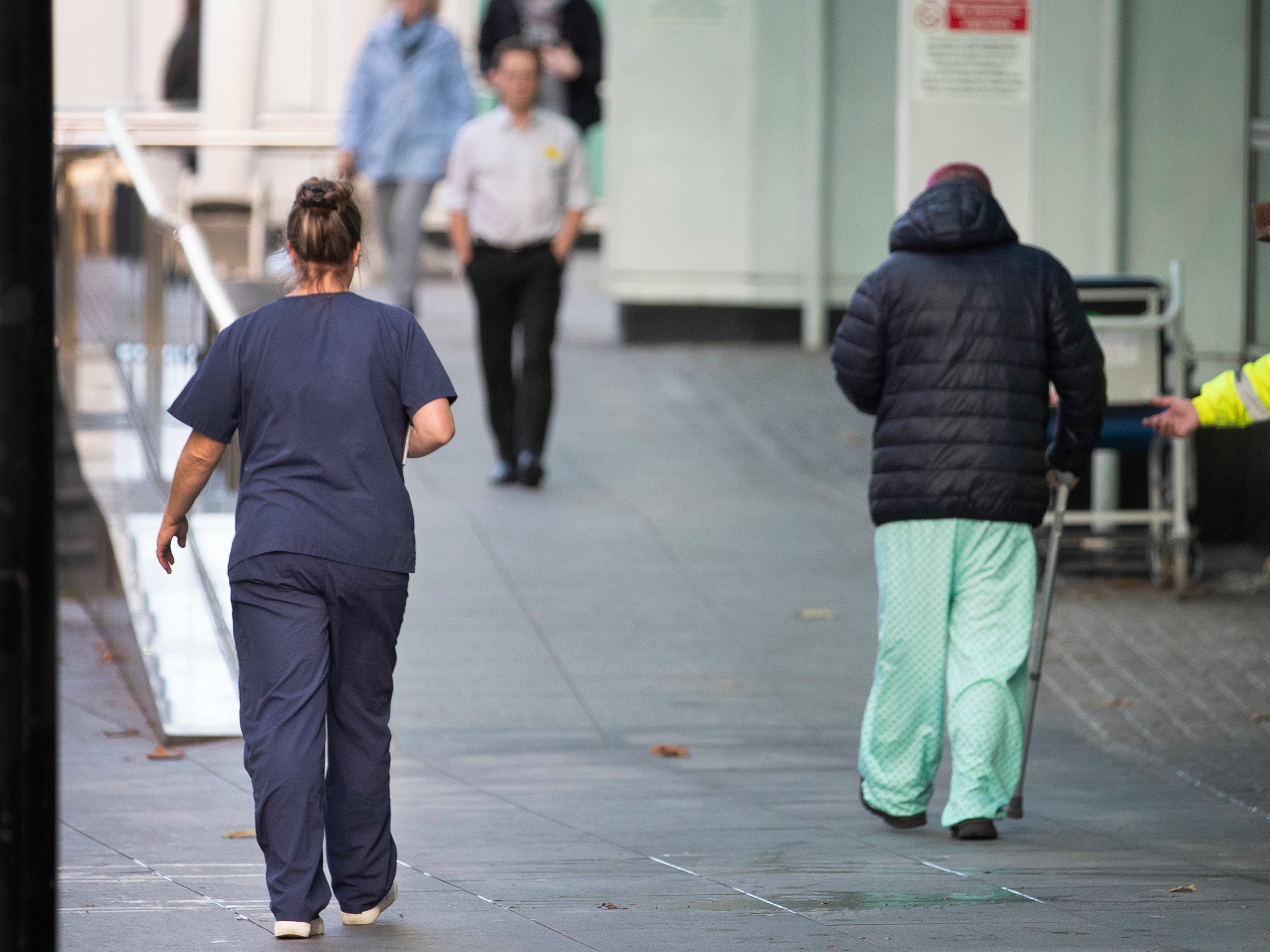‘Britain isn’t working’: This is why strikes are dangerous for the government
The strikes are a challenge for Labour as well as the Tories, writes Andrew Grice


Nurses, ambulance workers and hospital staff are discussing coordinated industrial action on 20 December, compounding the government’s headache. There will also be strikes by rail and mail workers and civil servants before Christmas.
Ministers believe the trade unions will lose public support, even though the workers, especially the nurses, enjoy more public sympathy than they did during the original Winter of Discontent in 1978-79. Some Tories even dare to believe the disputes could help them narrow the gap with Labour in the opinion polls – one MP reflected when real votes were cast in Thursday’s parliamentary by-election in Chester.
In public, Rishi Sunak’s ministers nod to the public sympathy by adopting a more conciliatory tone than they did under Liz Truss and Boris Johnson. Ministers now deign to meet rail union leaders; it should hardly come as a surprise but makes news. However, the government stops short of becoming directly involved in the negotiations, and insists the pay demands are “unaffordable”.
True, ministers have good reason to try to keep public sector pay rises below inflation, currently at 11.1 per cent. Keeping pace with it would add £18bn a year to state spending; government departments budgeted for rises of 3-4 per cent when inflation was running at under 4 per cent.
The government is wary of making a bigger offer to one group of workers for fear the figure then becomes the norm, saying this would create a wage-price spiral that would hurt everyone. Yet ministers have made their task harder. The decision to increase the state pension and benefits by 10 per cent next April inevitably fuels workers’ demands for a similar boost during the biggest squeeze on living standards since records began in 1956.
The government remains on the sidelines, posing as being on the public’s side and pleading with unions not to disrupt Christmas and harm businesses like the hospitality industry. But there are good reasons why ministers should go to the negotiating table. Privately, some Tory backbenchers are less confident the strikes could ultimately work to their party’s advantage.
They fear the disruption will add to the public’s impression that “Britain isn’t working”: the opposite of the Tories’ iconic 1978 poster “Labour isn’t working.” One former minister told me: “The strikes are dangerous for us. They contribute to a picture that the public can no longer rely on services, and nothing is working.” NHS stoppages will lengthen already record waiting lists, which some Tories regard as the biggest threat to their prospects at the next election.
The Tories’ traditional blame game includes playing the union card against Labour; ministers think this still strikes a chord for older voters who remember that 1978-79 winter But it was a very different era: Tory and Labour governments alike intervened to limit pay rises (in both the private and public sector) and price increases as they tried to control inflation.
Labour was in power last time, but today’s wave of strikes is a reaction to 12 years of Tory austerity. Public sector pay has fallen in real terms since 2010. But the current disputes are not just about money, especially in the NHS where exhausted staff have not recovered from the Covid crisis.
As Steve Brine, Tory chair of the health select committee, told Sky News: “The fact that you have so much coordinated strike action now suggests that there is deep unhappiness with levels of pay and with some conditions within parts of the health service.”
He suggested the current disputes were more concerning than the 1978-79 wave because Margaret Thatcher’s union legislation had made it harder to call strikes.
Ministers have been far too slow to bring in an NHS workforce plan. It won’t help solve this winter’s problems as it won’t take effect until next year.
Although Sunak bangs on about Labour’s “union paymasters”, Keir Starmer has distanced his party from them. Some unions have taken their money ball away but donations roll in from private individuals who shunned the party under Jeremy Corbyn’s leadership.
To keep up to speed with all the latest opinions and comment sign up to our free weekly Voices Dispatches newsletter by clicking here
However, the strikes are a challenge for Labour as well as the Tories. Internal tensions simmer as frontbenchers defend the right to strike but stop short of endorsing specific action for fear of alienating the public. Some frontbenchers want to join picket lines but Starmer has told them to stay away; for now, shadow cabinet members stick to the party line that union leaders want them to fight their case in parliament.
Although a Labour government would rightly negotiate directly with public sector unions in the hope of resolving disputes, shadow ministers cannot promise inflation-matching pay rises, knowing they would inherit a bleak economic landscape if they win power.
As one Labour insider told me: “We can’t be too associated with the rail workers, especially if their strikes disrupt Christmas, but at the same time we can’t dissociate ourselves too much from the nurses.” Tricky.
Like the Tories, Starmer has a very difficult balancing act this winter.
Join our commenting forum
Join thought-provoking conversations, follow other Independent readers and see their replies
Comments
Bookmark popover
Removed from bookmarks